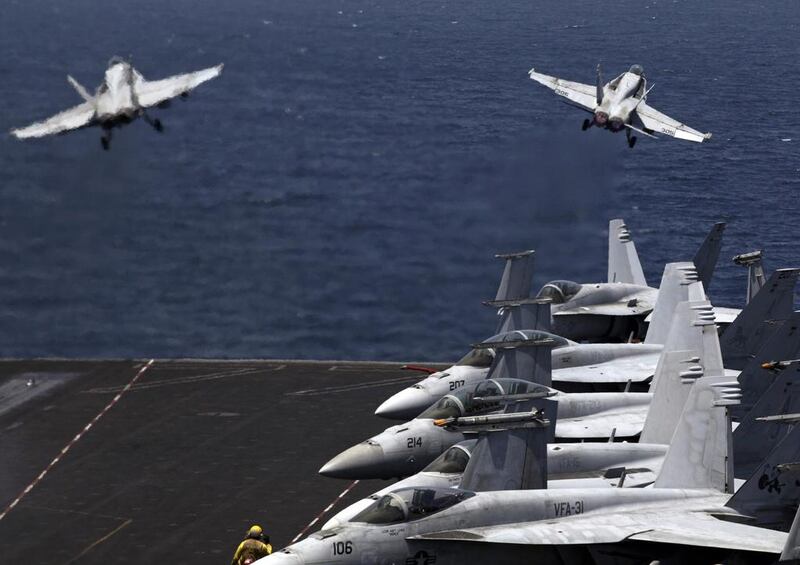The political shock waves caused by the Islamic State’s success will require a unified response
The shock waves caused by the Islamic State's advances in northern Iraq are continuing to ripple through the region in sometimes unexpected ways. Who would have predicted the formation of a new coalition of western countries favouring military intervention in Iraq 11 years after the US-led invasion? Or the demise of arch politician Nouri Al Maliki, or even that this might have an ultimately unifying effect on Iraq as a nation?
All this reflects the complexities at play. For all the talk about protecting Iraqi minorities from the Islamic State and its barbaric misinterpretation of Islam – a worthy enough goal on its own – one cause of this intervention was the prospect of the Kurdish region, and particularly its oil resources, being lost to an extremist group.
In Baghdad, Nouri Al Maliki being abandoned by his own Shia faction and by Iran, his regional benefactor, is a similarly major event prompted by the Islamic State’s success. His prospective replacement, Haider Al Abadi, has a month to not just form a government but also to begin undoing much of the division wrought by Mr Al Maliki’s cynically sectarian policies. Time is not a luxury he enjoys when it comes to completing this gargantuan and difficult task because in this case the phrase “barbarians at the gate” is literal rather than hyperbole. Given the pervading atmosphere of distrust, Mr Al Abadi must lead with actions rather than words.
Nor is this a time for half measures of the kind that have to date characterised much of the western response to the uprising in Syria. This reticence has led to moderate groups being sidelined and the success of hardline jihadist groups like the Islamic State. The need for a timely response is because success on the battlefield can become self-propagating, with other fighters aligning themselves with groups like the Islamic State.
One aspect that must be remembered in all this is that the Islamic State is just a symptom of something bigger: the power vacuum in Iraq and Syria caused each country’s instability. Even if US-led air strikes debilitates the Islamic State’s military capacity, another group – possibly even more extreme – will emerge in its place. Only addressing the dynamic that led to the rise of the Islamic State will make a difference.
That shows the true scale of the task ahead. The Islamic State and groups of its ilk can be neutralised, but only if the response is consistent and coordinated. Nobody should underestimate the difficulty of that.





